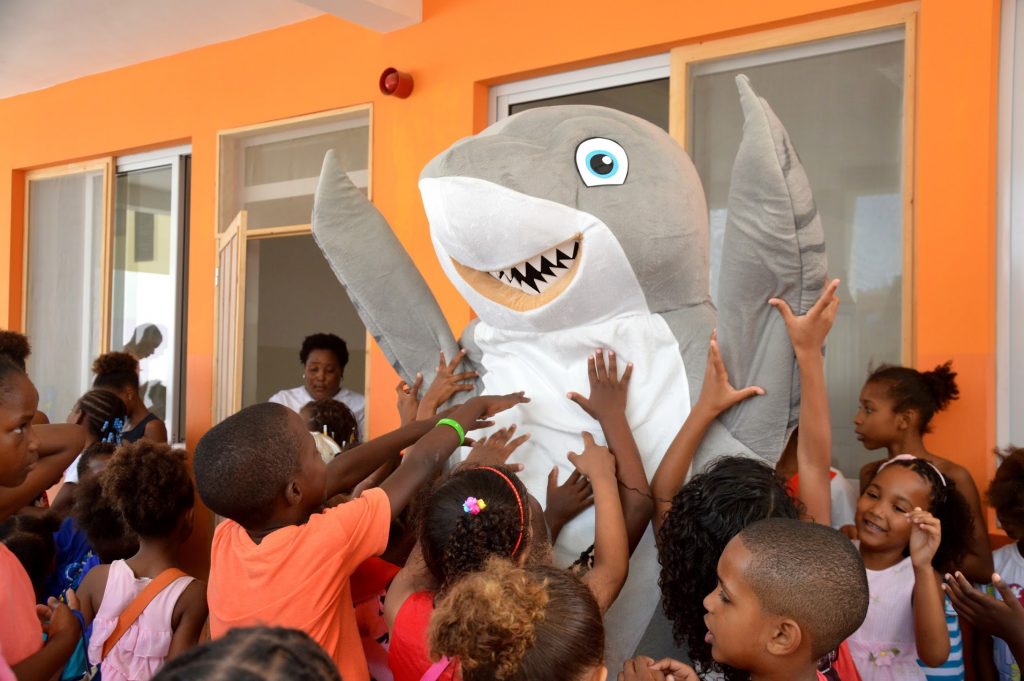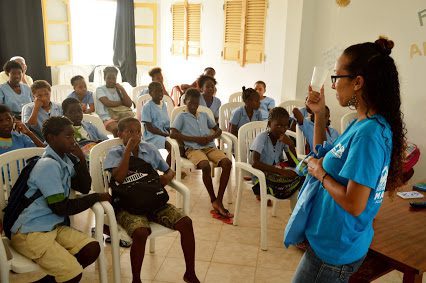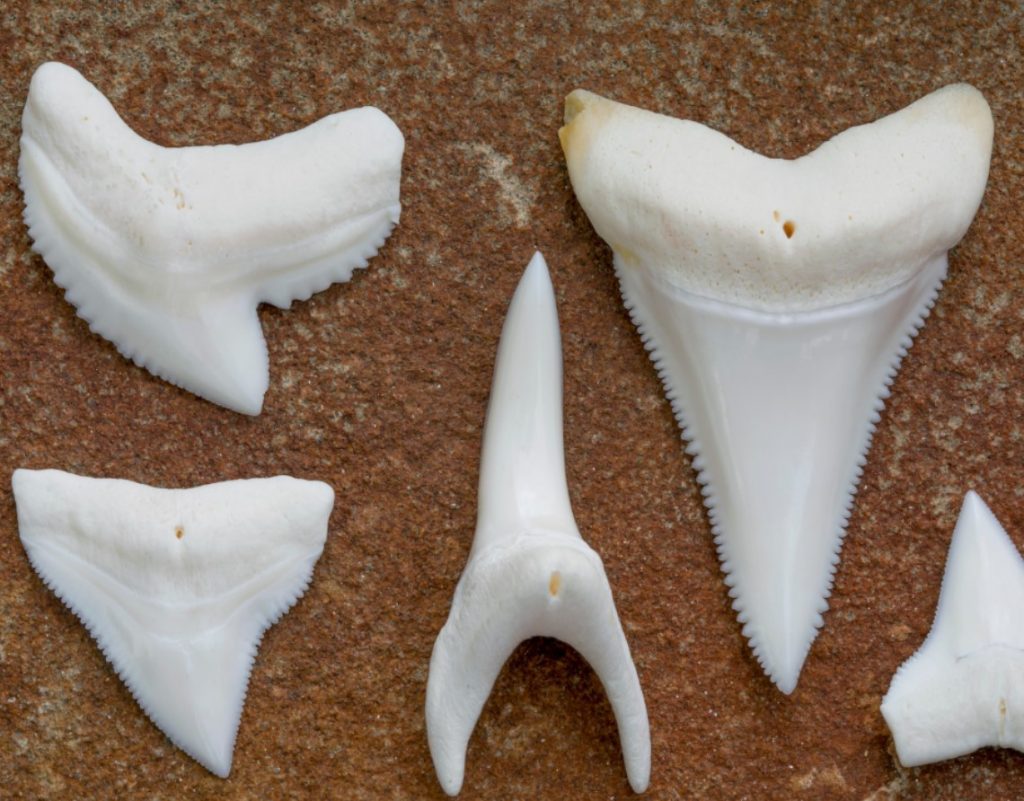
Photo: MarAlliance
Engaging students and the public about sharks and rays, and the need for greater understanding and conservation measures, has created an unexpected space and platform with schools and the public to talk about other urgent issues impacting the sea, notably plastic pollution. Like many island nations, Cabo Verde has a problem with waste disposal. Being a group of small windswept islands, a large amount of waste – especially plastics, inevitably enters the sea. This long-lasting rubbish impacts marine species and their habitats, and increasingly ends up back on our plates inside fish. It is estimated about 1/4 of caught fish have ingested plastics, though it is not yet known what effect this might have on us.
A recent study estimated that by 2050 there will be more plastic in the ocean than fish. While this is disturbing on many levels, it is especially concerning because plastic and other synthetic materials contain persistent pollutants, some of which can mimic and disrupt biological hormones and can take hundreds of year to decompose. During the time plastics are at sea, they are often mistakenly eaten, and can accumulate at potentially harmful levels in fish. And it’s not just bony fish who are feeling the effects, but seabirds, marine mammals and even sharks fall victim to ingestion and entanglement of our waste and discarded fishing gear.
Although plastic pollution is being increasingly studied, for many the problem remains out of sight and out of mind. Because we appreciate a challenge, in May we decided to integrate this new threat into our education and outreach program in Cabo Verde. We spent the month running an educational campaign on the impact of rubbish on marine fauna. By visiting schools, running interactive workshops with students, taking part in radio shows and holding outreach events, we are raising awareness to ensure that this broad threat to the marine environment remains highly visible and that we help to identify solutions to minimize waste and pollution.

Combating plastics pollution also has a powerful ally in our new team member, our friendly mascot, Tino the tiger shark. In the wild, tiger shark numbers have fallen significantly in the last 50 years as a result of overfishing. We also know that tiger sharks are fairly omnivorous and have been found with all sorts of plastic and metal rubbish in their stomachs. Tiger sharks are often stigmatized and viewed as a senseless monster. By promoting scientific fact instead of fiction and putting a great face to conservation, including plastic pollution, we are dismantling myths and changing perceptions at an early age, with the goal of cultivating pride for this iconic and critical species and encouraging strong connections to the sea.



